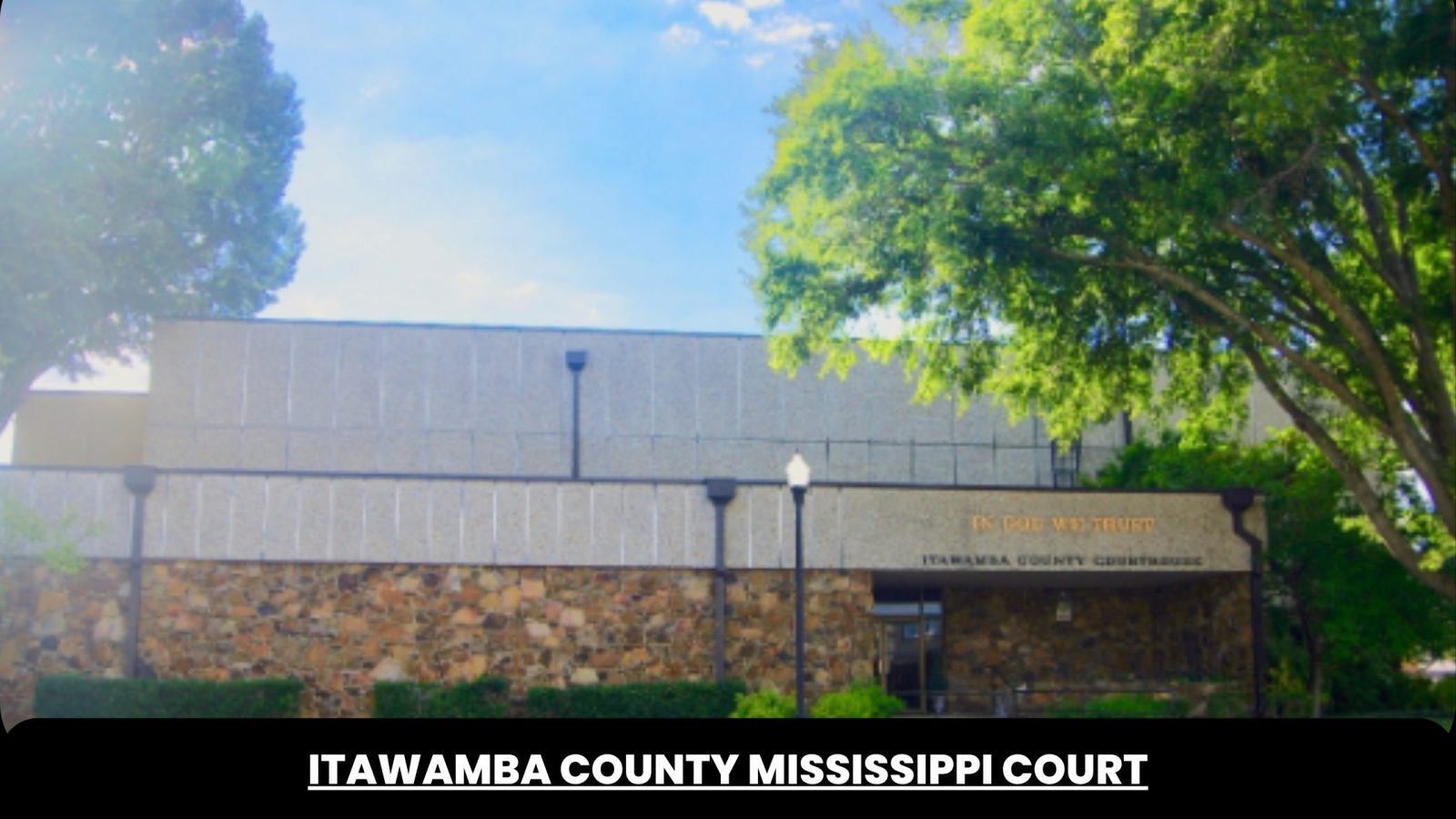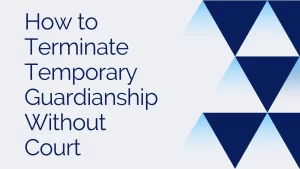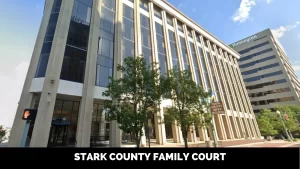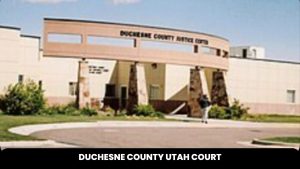Itawamba County Mississippi Court
The Itawamba County Court, located in Mississippi, serves as an integral part of the state’s judicial system. As a resident or someone with a legal matter in Itawamba County, understanding the workings of the local court can prove invaluable. This article will provide you with a comprehensive overview of the Itawamba County Court, including its jurisdiction, types of cases it handles, court procedures, access to court records, legal representation options, appellate courts, specialized courts, notable cases, and more.
Introduction
When dealing with legal matters in Itawamba County, Mississippi, it’s crucial to be familiar with the local court system. Whether you find yourself involved in a civil dispute, facing criminal charges, seeking resolution for family law issues, or dealing with probate matters, the Itawamba County Court is where these cases are heard and resolved.
Understanding Itawamba County, Mississippi Court
Location and Jurisdiction
The Itawamba County Court is situated in the heart of Itawamba County, Mississippi. The county itself is located in the northeastern part of the state, bordering Alabama. As the county’s primary judicial authority, the court exercises jurisdiction over legal matters that occur within its geographical boundaries.
Court Structure
The Itawamba County Court follows a hierarchical structure typical of most state courts in the United States. At the trial court level, Itawamba County is served by a Circuit Court, Chancery Court, and County Court. These courts handle various types of cases and have jurisdiction over different matters.
Judicial System Overview
The Itawamba County Court operates within the framework of the Mississippi judicial system. Mississippi’s judicial system comprises several tiers, with the Supreme Court at the apex, followed by the Court of Appeals, Circuit Courts, Chancery Courts, and County Courts. Each level of the judicial system has its own specific jurisdiction and responsibilities.
Types of Cases Heard in Itawamba County Court
The Itawamba County Court handles a wide range of cases that fall under its jurisdiction. Understanding the types of cases heard in this court can help individuals navigate the legal landscape more effectively. Some common types of cases include:
Civil Cases
Civil cases in Itawamba County Court cover a broad spectrum of legal disputes between individuals, organizations, or government entities. These cases may involve issues such as personal injury, contract disputes, property disputes, landlord-tenant disputes, and more. The court aims to provide fair resolutions and compensation for parties involved in civil matters.
Criminal Cases
The Itawamba County Court also presides over criminal cases, which involve offenses against the state or society. These cases range from misdemeanors to felonies and encompass crimes such as theft, assault, drug offenses, DUI charges, and more. The court ensures due process, conducts trials, and determines appropriate penalties based on the evidence presented.
Family Law Cases
Family law matters are another significant aspect of the Itawamba County Court’s jurisdiction. These cases involve legal issues related to families and domestic relationships, including divorce, child custody, child support, adoption, guardianship, and domestic violence protection orders. The court prioritizes the best interests of the involved parties, especially when children are involved.
Probate and Estate Cases
Probate and estate cases involve the legal process of distributing a deceased person’s assets and handling their affairs. Itawamba County Court oversees matters such as wills, estate administration, probate disputes, and guardianships for minors or incapacitated individuals. The court ensures the proper settlement of estates according to applicable laws.
Small Claims Cases
For disputes involving smaller monetary amounts, Itawamba County Court handles small claims cases. These cases provide an accessible avenue for individuals or businesses to seek resolution for minor financial disagreements, typically involving amounts below a specified threshold. The court simplifies the legal process and encourages swift resolution for such cases.
Court Procedures and Processes
Navigating the court system can be complex, but understanding the procedures and processes can help individuals prepare and present their cases effectively. The Itawamba County Court follows established procedures that ensure fairness and justice for all parties involved. Here is an overview of the typical court procedures:
Filing a Case
Initiating a case in Itawamba County Court starts with filing the necessary legal documents. Parties involved in a dispute or legal matter must submit a complaint, petition, or other relevant documents to the court. These documents outline the nature of the case, the parties involved, and the relief sought.
Pretrial Conferences
Before a case goes to trial, the court may conduct pretrial conferences to facilitate communication between the parties, exchange evidence, and explore potential settlements. Pretrial conferences aim to streamline the trial process, clarify legal issues, and encourage the resolution of disputes without going to trial.
Evidence and Witnesses
During a trial, both the prosecution and the defense present their evidence and call witnesses to support their arguments. The Itawamba County Court ensures that the evidence presented is relevant, admissible, and obtained legally. Witness testimony plays a crucial role in establishing facts and providing insight into the case.
Jury Selection
In cases where a jury is involved, the court follows a process called jury selection or voir dire. This process involves questioning potential jurors to assess their suitability and impartiality. The goal is to select a fair and unbiased jury that will make a decision based on the evidence and legal instructions provided during the trial.
Trial Proceedings
Once a case goes to trial, the Itawamba County Court oversees the presentation of evidence, arguments from both sides, and examination of witnesses. The judge ensures that the trial adheres to legal procedures, rules of evidence, and ensures a fair trial. Both parties have the opportunity to present their case and challenge the opposing party’s arguments. The judge or jury evaluates the evidence presented and renders a verdict based on the applicable laws.
Sentencing and Judgments
In criminal cases where the defendant is found guilty or in civil cases where liability is established, the Itawamba County Court proceeds to sentencing or judgment. The court determines the appropriate penalties, fines, or damages based on the nature of the case and the relevant laws. Sentencing aims to provide consequences and, when applicable, rehabilitation or restitution.
Accessing Court Records and Resources
Access to court records and resources is essential for transparency and ensuring public trust in the judicial system. Itawamba County Court provides various avenues for individuals to access court records and obtain legal information. Here are some common methods:
Online Resources
The Itawamba County Court maintains an online portal or website where individuals can access court records, case information, and legal resources. These online resources may include court calendars, case summaries, forms, and other relevant documents. Access to certain records may require registration or payment of fees.
In-person Requests
For individuals who prefer to access court records in person, the Itawamba County Court allows for requests at the courthouse. Interested parties can visit the court clerk’s office and submit a request to obtain specific court documents. It’s important to note that there may be restrictions on accessing certain confidential or sealed records.
Fees and Restrictions
When accessing court records, Itawamba County Court may impose fees for document retrieval, copying, or certification. These fees help cover administrative costs associated with maintaining and providing access to court records. Additionally, certain types of records may be restricted from public access to protect privacy or maintain confidentiality.
Legal Representation and Self-Representation
When dealing with legal matters in Itawamba County Court, individuals have the right to legal representation or the option to represent themselves. Here are some considerations:
Hiring an Attorney
Many individuals find it beneficial to hire an attorney who specializes in the relevant area of law. An experienced attorney can provide legal advice, navigate the court procedures, gather evidence, present arguments, and negotiate on behalf of their client. Hiring an attorney can increase the chances of a favorable outcome in a legal case.
Pro Bono Services
For those who cannot afford legal representation, Itawamba County Court may offer pro bono services through local legal aid organizations or volunteer attorney programs. These services provide eligible individuals with free or reduced-cost legal assistance, ensuring access to justice for all members of the community.
Self-Representation Options
Individuals also have the right to represent themselves in court, known as pro se representation. While self-representation allows individuals to have direct control over their case, it’s important to recognize the complexities of the legal system and the potential challenges that may arise. It’s advisable to thoroughly research applicable laws, court procedures, and seek guidance from legal resources if choosing self-representation.
Appeals and Appellate Courts
If a party disagrees with the decision or outcome of a case in Itawamba County Court, they may have the right to appeal the decision. Appeals involve presenting legal arguments to a higher court, known as an appellate court, challenging the lower court’s ruling. Here is an overview of the appellate process in Itawamba County:
The Appellate Process
Appellate courts review the lower court’s decisions to determine if errors in the application of law or procedure occurred. To initiate an appeal, the party must file a notice of appeal within the designated timeframe and follow the appellate court’s rules and procedures. The appellate court reviews the record, considers legal arguments, and may uphold, reverse, or modify the lower court’s decision.
Itawamba County’s Appellate Courts
In Itawamba County, Mississippi, the appellate process is overseen by the Mississippi Court of Appeals and the Mississippi Supreme Court. The Mississippi Court of Appeals is an intermediate appellate court that reviews decisions from trial courts, including the Itawamba County Court. Parties dissatisfied with the Court of Appeals’ decision can seek further review from the highest court in the state, the Mississippi Supreme Court.
The Mississippi Supreme Court serves as the final appellate authority in the state. It primarily focuses on cases involving constitutional issues, significant legal questions, or matters of great public interest. Appeals to the Mississippi Supreme Court are discretionary, meaning the court has the discretion to accept or deny review of a case. If the Supreme Court accepts a case, it will thoroughly review the legal arguments and make a final determination.
Specialized Courts in Itawamba County
Aside from the general jurisdiction courts, Itawamba County also has specialized courts that address specific types of cases. These specialized courts aim to provide tailored approaches to certain legal matters and address underlying issues. Here are some notable specialized courts in Itawamba County:
Drug Court
The Itawamba County Drug Court focuses on rehabilitating individuals struggling with substance abuse issues. The court takes a proactive approach by offering treatment programs, counseling, and close supervision to eligible participants. The goal is to help individuals overcome addiction, address the root causes of substance abuse, and reduce recidivism rates.
Juvenile Court
Itawamba County Juvenile Court handles cases involving minors who are accused of committing delinquent acts or are in need of protection and care. The court focuses on the welfare and rehabilitation of juveniles, emphasizing interventions that address underlying issues and promote positive development. Itawamba County Juvenile Court aims to provide support, guidance, and accountability to young individuals involved in the justice system.
Veterans Court
Recognizing the unique needs and challenges faced by military veterans, Itawamba County Veterans Court provides specialized services to veterans who have become involved in the criminal justice system. The court focuses on connecting veterans with resources, counseling, treatment programs, and support networks. It aims to address underlying issues such as post-traumatic stress disorder (PTSD) and substance abuse, facilitating rehabilitation and successful reintegration into society.
Notable Cases and Legal Developments
Over the years, Itawamba County Court has witnessed numerous notable cases and legal developments that have shaped the local legal landscape. These cases may have set legal precedents, led to changes in legislation, or garnered significant public attention. While each case’s specifics may vary, they collectively contribute to the ongoing evolution of the legal system in Itawamba County.
Itawamba County Court Dockets
The Itawamba County Court dockets contain valuable information about scheduled court hearings, case status, and other important details related to legal proceedings within the county. Here’s what you need to know about Itawamba County Court dockets:
- Schedules and Listings: The court dockets provide a schedule of upcoming court hearings, including dates, times, and locations. They specify which cases will be heard on a particular day and allow attorneys, litigants, and the public to prepare accordingly.
- Case Information: Each docket entry includes information about the involved parties, attorneys, and the nature of the case. It may also indicate the specific judge assigned to preside over the case.
- Updates and Changes: Court dockets are subject to changes and updates due to various factors, such as case continuances, settlements, or other developments. It’s essential for individuals involved in a case to regularly check the docket for any modifications or rescheduling.
- Accessing Dockets: Itawamba County Court dockets can often be accessed online through the court’s official website or through specialized online platforms. These resources allow individuals to search for specific cases, view upcoming schedules, and access relevant information about ongoing legal proceedings.
- Contacting the Court: In some cases, contacting the court clerk’s office directly may be necessary to obtain specific docket information, especially for cases that are not publicly available or require additional clarification.
Itawamba County Courthouse Hours
The Itawamba County Courthouse operates during specific hours to serve the public and address legal matters efficiently. The courthouse hours are designed to accommodate various activities and services. Here’s an overview of typical Itawamba County Courthouse hours:
- Regular Business Hours: The Itawamba County Courthouse is generally open from Monday to Friday. The standard operating hours for the courthouse are typically from 8:00 AM to 5:00 PM, with a lunch break around noon. These hours allow individuals to access various offices, including the chancery clerk, circuit clerk, court clerk, and other administrative offices.
- Holiday and Closure Schedule: The courthouse may observe certain holidays and close on specific dates. It’s advisable to consult the official website or contact the courthouse directly to confirm any closures or modified hours due to holidays or unforeseen circumstances.
- Emergency Services: In case of emergencies during non-business hours, the Itawamba County Courthouse may have provisions for emergency services. This ensures that urgent matters, such as requests for restraining orders or emergency hearings, can be addressed promptly. It’s essential to familiarize yourself with the specific emergency procedures and contact information provided by the courthouse for such situations.
- Remote Services: In certain circumstances, the Itawamba County Courthouse may offer remote services or virtual hearings, especially during exceptional circumstances like natural disasters or public health emergencies. These arrangements allow individuals to access court services and proceedings remotely, ensuring continued access to justice and legal processes.
It’s important to note that courthouse hours and availability may be subject to change, so it’s advisable to check the official website or contact the Itawamba County Courthouse directly for the most up-to-date information regarding their operating hours.
Itawamba County Tax Collector
The Itawamba County Tax Collector plays a crucial role in the assessment, collection, and administration of taxes within Itawamba County. Here’s what you need to know about the Itawamba County Tax Collector:
- Tax Assessment: The tax collector’s office is responsible for assessing property taxes, including real estate and personal property, based on the county’s tax laws and regulations. Property owners receive tax assessment notices, and the tax collector ensures accurate valuations and calculations.
- Tax Collection: Once taxes are assessed, the tax collector’s office is responsible for collecting and processing tax payments. They establish payment deadlines, accept payments, and issue receipts. The tax collector also handles delinquent tax collections and may initiate necessary legal actions for non-payment.
- Tax Records and Documentation: The tax collector maintains records and documentation related to tax assessments, payments, and exemptions. These records serve as a historical reference and provide transparency in the tax collection process.
- Taxpayer Assistance: The tax collector’s office assists taxpayers with inquiries, provides information about tax rates and exemptions, and helps individuals navigate the tax assessment and payment process. They may also provide guidance on available tax relief programs or installment payment options.
To access specific information about property taxes, assessment values, payment methods, or any other tax-related matters, individuals can visit the Itawamba County Tax Collector’s office in person, contact them via phone or email, or check the official county website for online resources.
Conclusion
Understanding the intricacies of the Itawamba County Court is crucial for anyone involved in legal matters within the county. Whether you’re facing a civil dispute, criminal charges, family law issues, or probate matters, being aware of the court’s jurisdiction, procedures, and resources can help you navigate the legal process more effectively. By engaging with the Itawamba County Court’s services, accessing court records, and seeking appropriate legal representation, individuals can seek resolution and justice within the local judicial system.
FAQs
How can I find the schedule for court hearings in Itawamba County?
The Itawamba County Court typically provides a court calendar that lists upcoming hearings. You can access this calendar online through the court’s website or contact the court clerk’s office for more information.
Can I pay my fines online for Itawamba County Court?
Itawamba County Court may provide online payment options for fines and fees. Check the court’s website for details on online payment methods and accepted forms of payment.
How long does a typical court case last in Itawamba County?
The duration of a court case in Itawamba County can vary depending on several factors, including the complexity of the case, the number of parties involved, and the court’s schedule. Simple cases may be resolved relatively quickly, while more complex cases can take months or even years to reach a resolution. It’s best to consult with an attorney or contact the court clerk’s office for an estimate of the expected duration for your specific case.
What are the qualifications to serve as a juror in Itawamba County?
To serve as a juror in Itawamba County, individuals must meet certain qualifications. Typically, prospective jurors must be U.S. citizens, residents of the county, at least 18 years old, and have no disqualifying factors such as felony convictions. Jury selection is based on a random process, and potential jurors may be further screened during voir dire to ensure impartiality in the case.
Are court records in Itawamba County open to the public?
In general, court records in Itawamba County are open to the public unless they are specifically sealed or protected by confidentiality laws. However, it’s important to note that certain sensitive or confidential information may be redacted or restricted from public access to safeguard privacy or protect sensitive matters. To access court records, you can utilize the online resources provided by the court or make in-person requests at the court clerk’s office.







